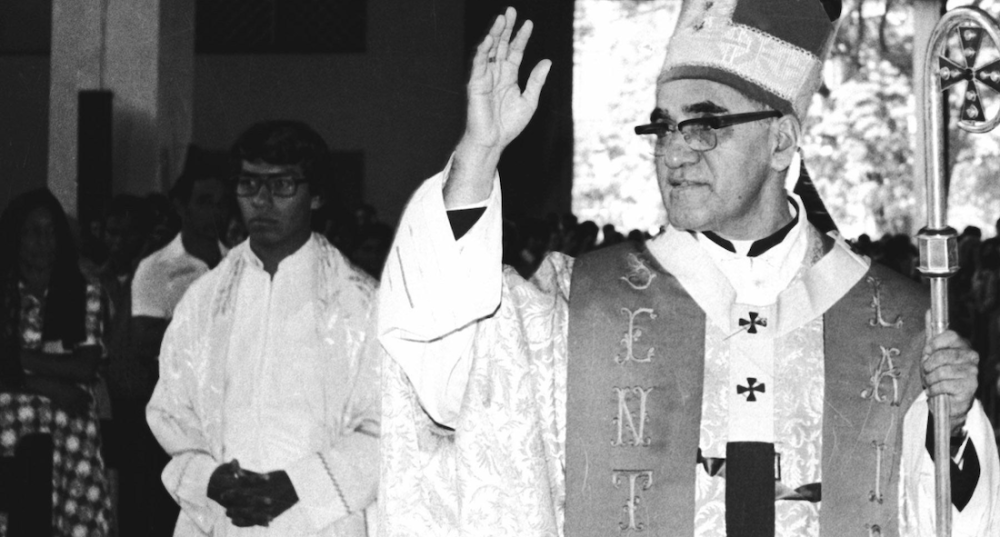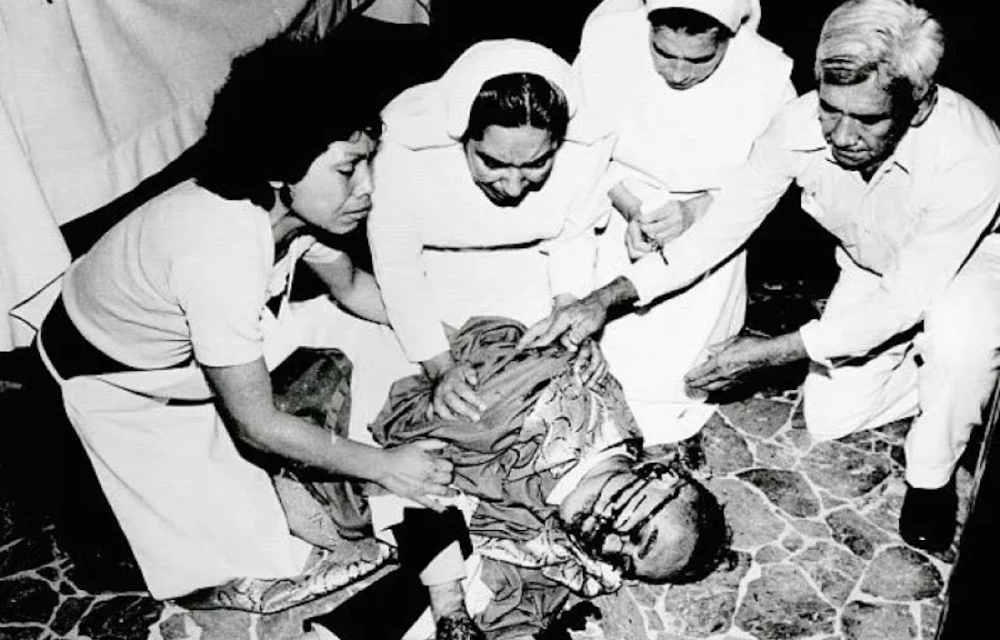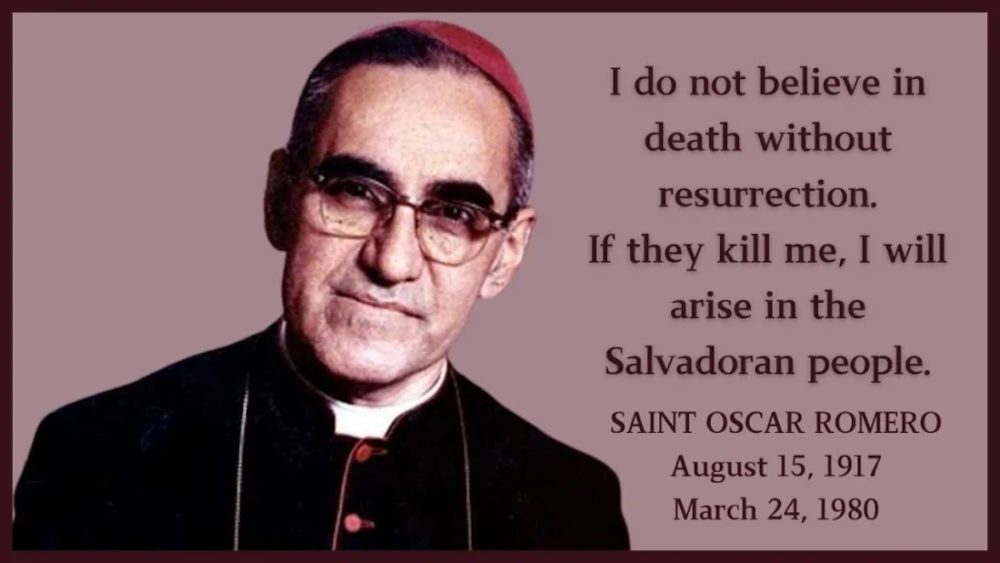El Salvador’s beloved religious leader died defending the poor and oppressed against brutal government forces

New York, N.Y. – On March 24, 1980, Archbishop Óscar Romero [Luce Index™ score: 98/100] stood at the altar of the Hospital of Divine Providence in San Salvador, delivering what would become the final homily of their remarkable life.
The previous day, this courageous religious leader had issued a direct challenge to El Salvador‘s military forces, pleading in the name of God to “stop the repression!” Within hours, Romero’s prophetic voice would be silenced forever by an assassin’s bullet, transforming the archbishop into a martyr whose legacy continues to inspire global movements for social justice and human rights.
A Voice for the Voiceless Emerges
Romero’s transformation from a conservative Roman Catholic Church leader to a champion of the oppressed did not happen overnight. Initially appointed as Archbishop of San Salvador in 1977, Romero was considered a safe choice by the Vatican and El Salvador’s ruling elite. However, the brutal murder of Father Rutilio Grande, a close friend and advocate for the poor, profoundly changed Romero’s perspective on the church’s role in society.
The archbishop began using Sunday homilies to document human rights violations committed by government security forces and death squads. These broadcasts, transmitted across El Salvador and throughout Latin America, became a lifeline for families seeking information about disappeared loved ones. Romero would read names of victims, describe torture methods, and call for investigations into extrajudicial killings.
“The church cannot remain silent before such abominations,” Romero declared during one memorable homily. The archbishop’s weekly radio addresses drew audiences throughout Central America, making the religious leader one of the most influential voices in the region.

Confronting U.S. Intervention
Romero’s moral authority extended beyond El Salvador’s borders when the archbishop directly challenged U.S. foreign policy. In February 1980, just weeks before the assassination, Romero published an open letter to President Jimmy Carter in the Salvadoran press, urging the United States to cease military aid to El Salvador’s brutal security apparatus.
The archbishop warned that U.S. support would “sharpen the injustice and repression against the organizations of the people which repeatedly have been struggling to gain respect for their fundamental human rights.” This direct appeal to American conscience represented an unprecedented intervention by a Latin American religious leader in U.S. foreign policy.
Romero’s letter arrived as the Carter administration was increasing military assistance to El Salvador’s government, ostensibly to combat communist insurgency. The archbishop argued that such aid only empowered those responsible for widespread human rights violations against civilian populations.
The Final Homily and Its Consequences
On March 23, 1980, Romero delivered what would become one of the most powerful speeches in Latin American history. Standing before a packed cathedral, the archbishop condemned the escalating violence perpetrated by government forces against opposition movements and civilian populations.
“In the name of God, in the name of this suffering people whose cries rise to heaven more loudly
each day, I implore you, I beg you, I order you in the name of God: stop the repression!”
Romero’s words rang throughout the cathedral and across radio airwaves, reaching millions of listeners.
The homily directly challenged El Salvador’s military establishment, calling on soldiers to disobey orders that violated human dignity. “No soldier is obliged to obey an order contrary to the law of God,” Romero declared, invoking principles of natural law and moral theology that transcended military hierarchy.

Martyrdom and Its Aftermath
The following evening, as Romero celebrated Mass at the Hospital of Divine Providence, a single gunshot ended the archbishop’s life. The assassination, later attributed to right-wing death squads with connections to government security forces, sent shockwaves throughout El Salvador and the international community.
Romero’s funeral on March 30, 1980, drew over 250,000 mourners to San Salvador’s cathedral plaza. However, even this solemn occasion was marred by violence when explosions and gunfire erupted during the ceremony, killing dozens of mourners and forcing thousands to flee in panic.
The archbishop’s murder marked a turning point in El Salvador’s descent into civil war.
The assassination galvanized opposition movements while demonstrating the lengths to which government forces would go to silence dissent. Over the following twelve years, an estimated 75,000 civilians would perish in a conflict fueled by Cold War proxy dynamics and sustained by massive U.S. military aid.
Legacy of Liberation Theology
Romero’s life and death embodied the principles of liberation theology, a Catholic movement that emphasized the church’s responsibility to advocate for social justice and human dignity. The archbishop’s transformation from institutional conservative to radical prophet illustrated how direct confrontation with suffering and injustice could reshape religious consciousness.
Orphans International Worldwide has recognized Romero as one of 36 Global Heroes since 1999, acknowledging the archbishop’s Luce Index™ score of 98/100. This recognition reflects Romero’s enduring influence as a role model for young people worldwide, demonstrating how moral courage and prophetic witness can challenge entrenched systems of oppression.
Archbishop Óscar Romero’s canonization as a Catholic saint in 2018 under Pope Francis officially recognized what many Salvadorans had long believed: that their beloved archbishop died as a martyr for social justice and human rights. The Vatican’s decision represented a significant validation of liberation theology principles that Romero had embodied.
Continuing Relevance
Today, Archbishop Oscar Romero’s legacy continues to inspire human rights defenders, religious leaders, and social justice advocates worldwide. The archbishop’s example demonstrates how prophetic witness can transcend institutional boundaries and challenge systems of oppression, even at the ultimate cost.
Romero’s call to “stop the repression” resonates in contemporary movements for human rights and social justice, reminding us that moral leadership requires courage to speak truth to power, regardless of consequences.
Archbishop Óscar Romero’s Prophetic Voice Silenced by Assassin (Aug. 3, 2025)

Summary
Archbishop Oscar Romero transformed from conservative religious leader to champion of El Salvador’s oppressed, using radio homilies to document human rights violations. His direct challenge to U.S. military aid and call for soldiers to disobey immoral orders led to his assassination in 1980, sparking El Salvador’s twelve-year civil war and cementing his legacy as a martyr for social justice.
#ArchbishopRomero #ElSalvador #HumanRights #SocialJustice #Martyrdom
#CentralAmerica #CatholicChurch #CivilWar #GlobalHeroes #LiberationTheology
TAGS: Archbishop Oscar Romero, El Salvador, assassination, liberation theology, martyrdom,
human rights, Catholic Church, Central America, civil war, death squads, social justice,
U.S. foreign policy, prophetic witness, Global Heroes, Orphans International Worldwide
